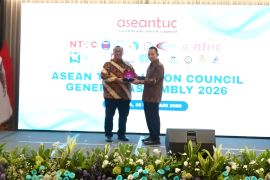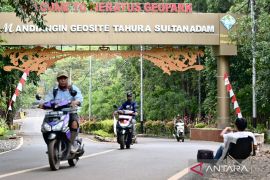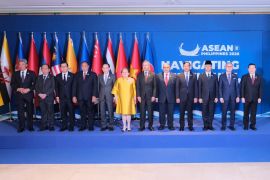"Cooperation in food is to become more urgent in the coming years and it was in fact mandated by the 18th ASEAN Summit," Boediono said here on Friday when opening the 11th ASEAN Ministerial Meeting on Agriculture and Forestry (AMAF) Plus Three (China, Japan and South Korea).
The attention of ASEAN and the world lately has been directed to a widening gap between food consumption and production globally, he said.
In the 18th ASEAN Summit last May, the heads of state explicitly instructed the concerned ministers to take concrete steps to address the problem, he added.
"Considering that the world population is estimated to reach 9.5 billion people by 2050, the global food production must be increased around 75 percent, and for the developing nations up to 100 percent," he said.
Therefore, the ASEAN cooperation should concern not only food production but also consumption.
ASEAN senior officials and their counterparts from China, Japan, and South Korea have discussed concrete plans on food security in the southeast Asian region since the past few months, he said.
The ASEAN Plus Three forum will expand open options to respond to the common challenges in the food sector as China, Japan and South Korea have advanced technology and food security system, according to the vice president.
The senior official level meeting of AMAF was organized in Jakarta on October 3-5, and was followed by the 33rd Session of the AMAF ministerial meeting on October 6.
The meeting discussed among other things about an Agriculture and Forestry Exhibitions, the Special Event on "ASEAN and International Year of Forest 2011", a signing ceremony for the ASEAN Plus Three Rice Emergency Reserve (APTERR) Agreement, and ASEAN and World Organisation for Animal Health MoU on ASEAN Regional Animal Health Information System (ARAHIS).
On October 8, the ASEAN ministers of agriculture and forestry will hold meeting with their Indian counterpart.(*)
Editor: Ruslan Burhani
Copyright © ANTARA 2011











